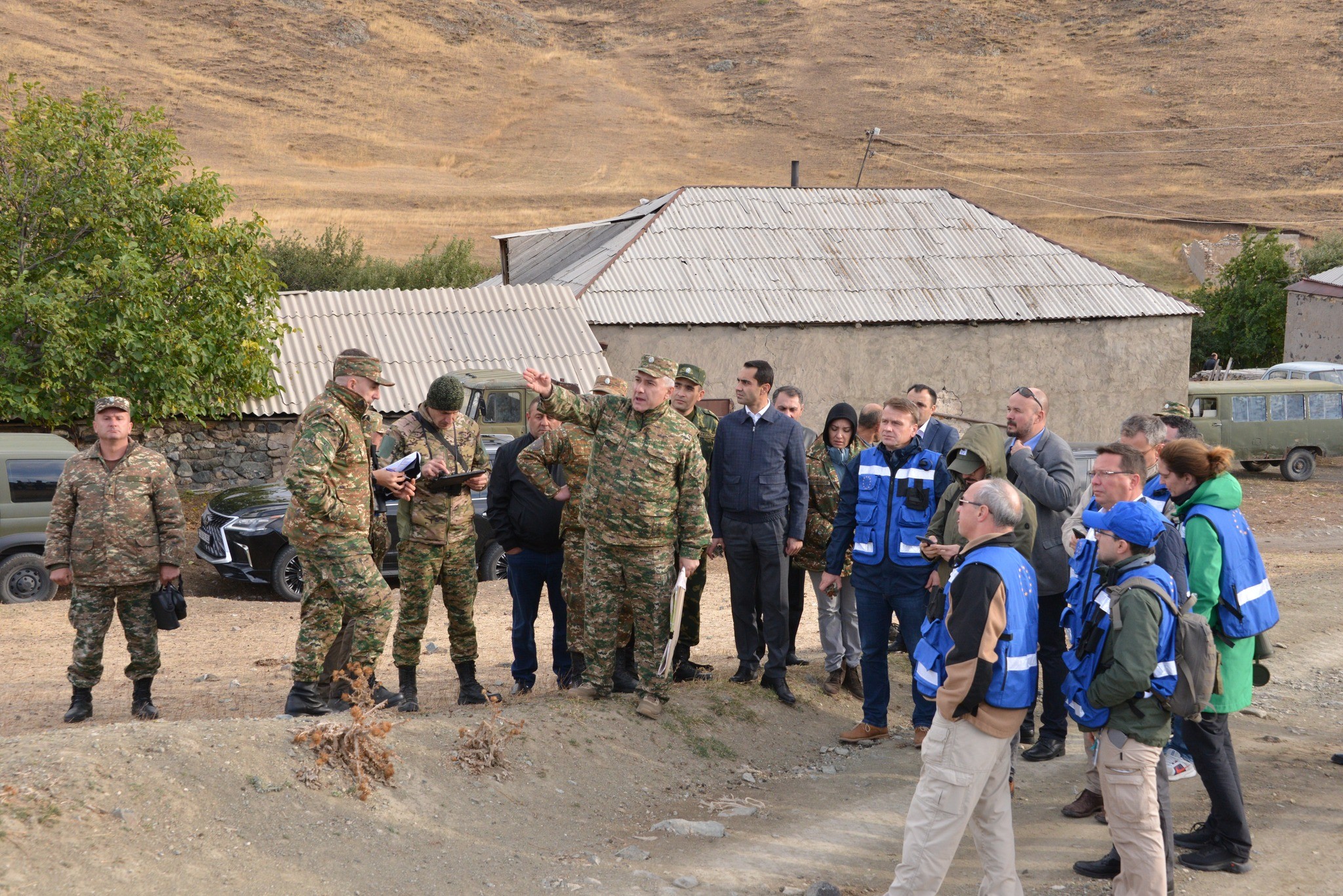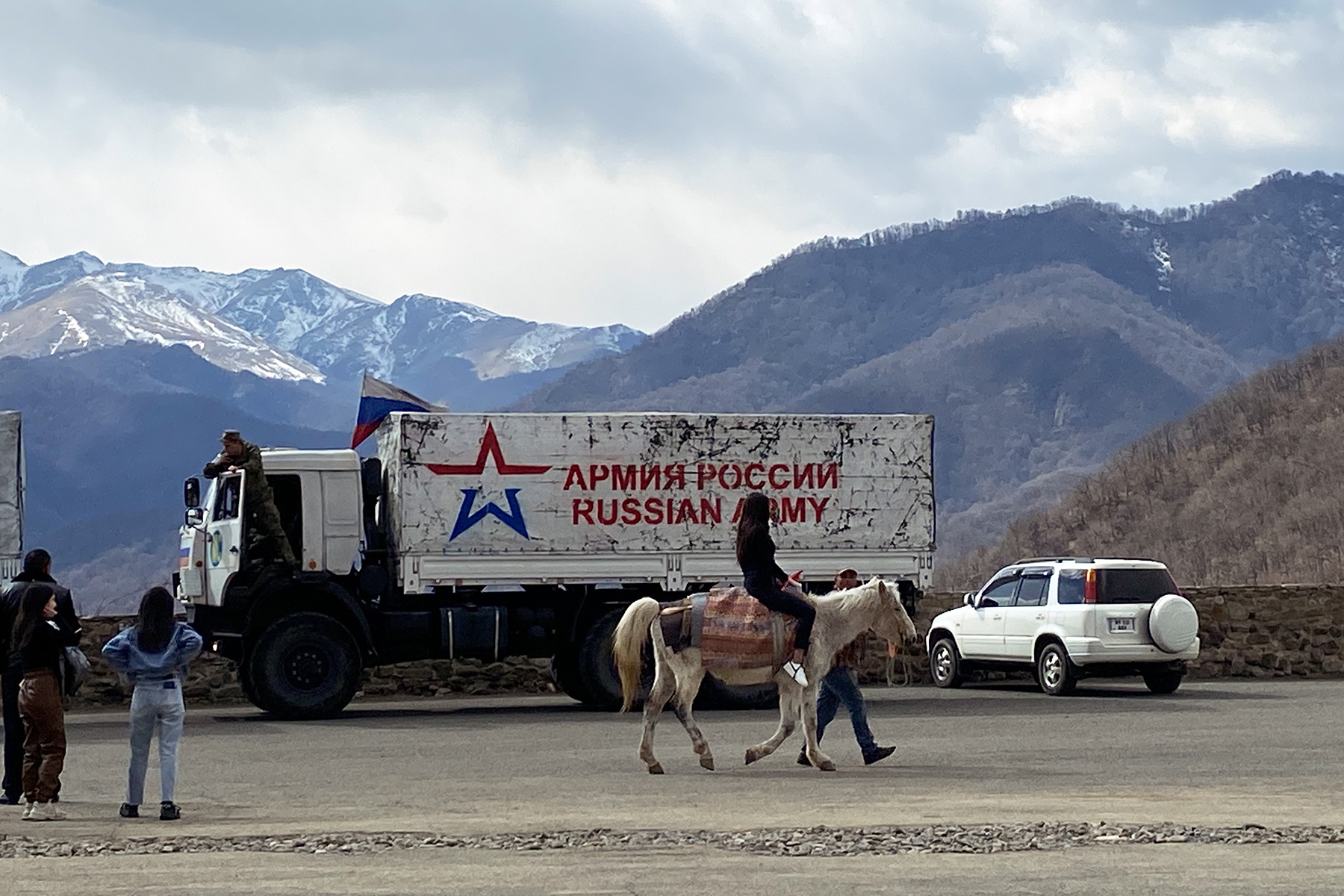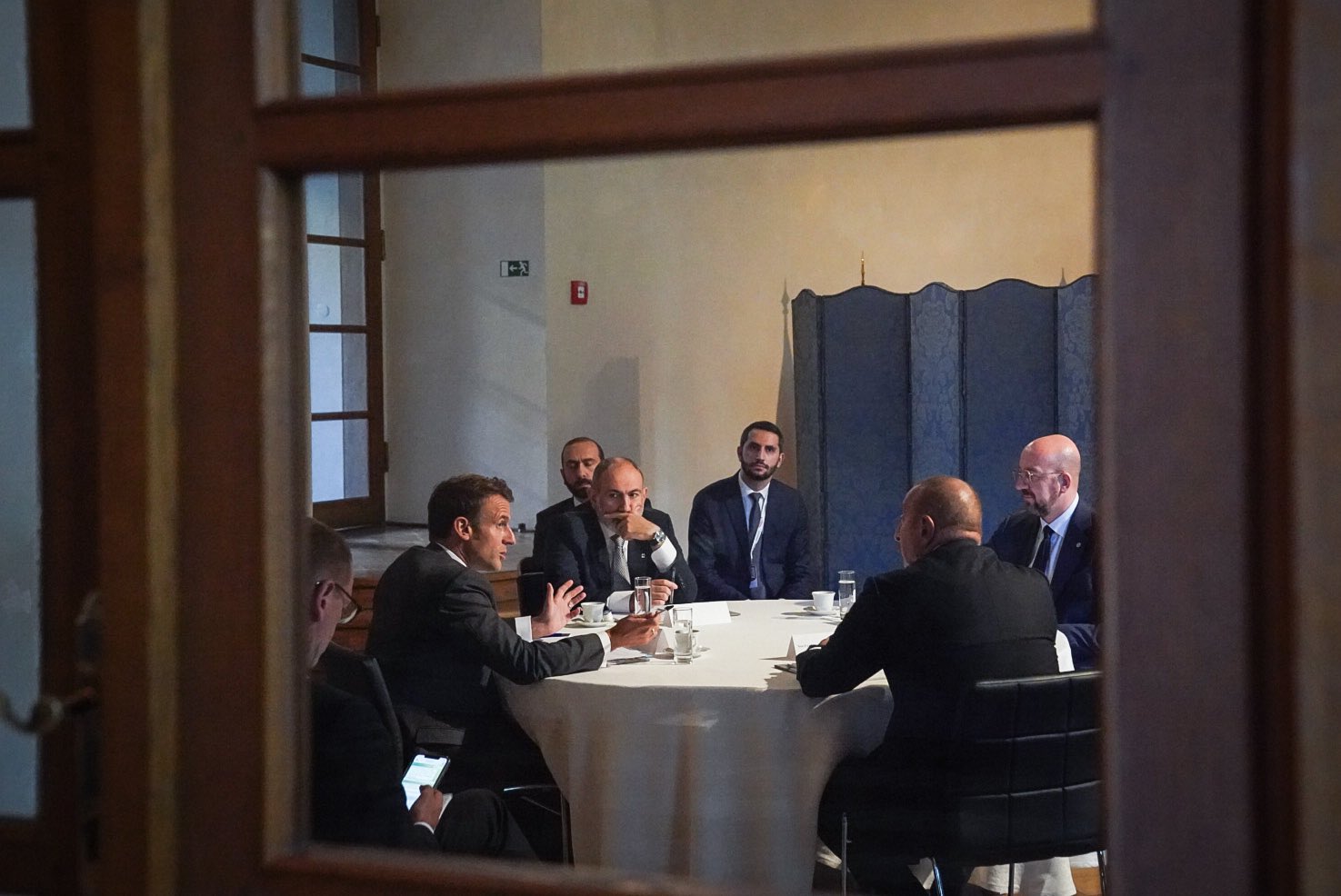
The European Union has approved the deployment of a new civilian monitoring mission in Armenia to ‘contribute to stability in border areas’.
In a statement announcing the decision on Monday, the EU Council said it would ‘build confidence on the ground, and ensure an environment conducive to normalisation efforts between Armenia and Azerbaijan supported by the EU.’
The civilian mission, which was requested by Yerevan, will ‘conduct routine patrolling and report on the situation’. Headquartered in Armenia, the European Union Mission in Armenia (EUMA) will have a two-year mandate.
The number of personnel to be deployed has not yet been officially announced. Last week Politico reported that a mission could have ‘up to 100’ members while RFE/RL reported that 200 monitors could be deployed.
The mission replaces a two-month EU monitoring mission which was deployed along the Armenia–Azerbaijan border following the September 2022 war between the two countries.
The previous mission, which operated exclusively on the Armenian side of the border, received a cold reception from Azerbaijan, though Baku did agree to cooperate with it.
The mission will not operate in Nagorno-Karabakh, where around 2,000 Russian peacekeepers have been stationed since the 2020 Second Nagorno-Karabakh War. Last week, the European Parliament adopted a resolution calling for a UN-mandated peacekeeping mission to replace the Russian force in Nagorno-Karabakh.

Josep Borrell, the EU’s High Representative for Foreign Affairs, said the mission represented ‘a new phase in the EU’s engagement in the South Caucasus.’
‘The EU will continue to support de-escalation efforts and is committed to work closely with both sides towards the ultimate goal of sustainable peace in the region’, he said.
The news was welcomed by Yerevan. ‘We very much welcome the EU’s decision to send a fully-fledged civilian mission to Armenia’, Armenian Foreign Minister Ararat Mirzoyan tweeted in response. ‘We will readily cooperate with the mission and support its activities.’
The presence of EU monitors has received a less-than-warm welcome from Moscow.
On 18 January, Russian Foreign Minister Sergey Lavrov complained that Armenia ‘prefers to agree with the European Union on the placement of a civilian observer mission’ over the deployment of peacekeepers from the Russian-led security bloc, the CSTO.
Lavrov dismissed the EU mission as ‘counterproductive’, arguing that it ‘could create additional tensions’.
Armenia has expressed increasing dissatisfaction with Russia and the CSTO over their failure to honour security guarantees to Armenia when Azerbaijani forces entered Armenian territory in September 2022.
According to the EU, the mission will also contribute to the EU’s mediation efforts between Armenia and Azerbaijan.

The talks, mediated by EU Council President Charles Michel, have run in parallel to Russian efforts to mediate between the two sides.
The future of the Charles Michel talks came into question last month, after a meeting between the Armenian and Azerbaijani leaders in Brussels scheduled for 7 December was cancelled at the last moment. Azerbaijan initially claimed Armenia pulled out of the meeting, though President Aliyev later told journalists that Azerbaijan had objected to the French President Emanual Macron being present, as in previous meetings.
However, on 19 January, Aliyev ‘emphasised the importance’ of the EU-mediated talks in a meeting with Dutch Prime Minister Mark Rutte in Davos, state news agency Azertac reported.
Additional reporting by Ismi Aghayev and Ani Avetisyan.









